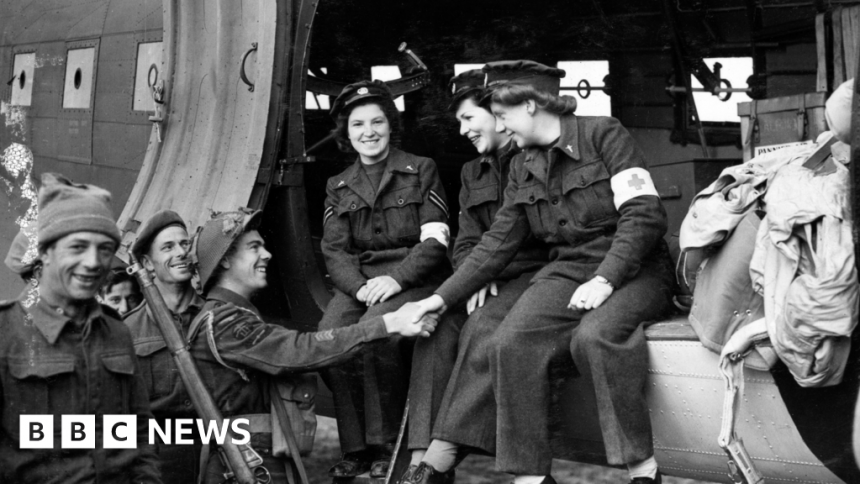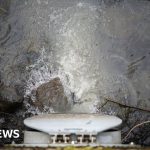Flying Nightingales celebrated 80 years after first flight
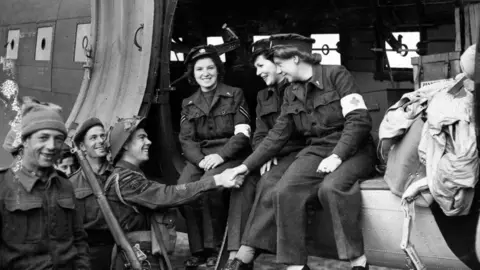 Ministry of Defence
Ministry of Defence The first British women to be officially flown into a war zone have been commemorated 80 years after they were sent to treat World War Two soldiers.
On 13 June 1944 three Women’s Auxiliary Air Force (WAAF) nursing orderlies, Corporal Lydia Alford and leading aircraftwomen (LACW) Myra Roberts and Edna Birkbeck, flew from RAF Blakehill Farm in Wiltshire to an airstrip in Normandy.
Flying a week after D-Day, the three women delivered supplies and evacuated injured men, all while coming under enemy fire.
Attending an event to commemorate the historic first mission, LACW Birkbeck’s daughter, Sian Gammond, said: “To think it just started from a little place in Wiltshire.”
Cpl Alford’s niece, Sheila Lane, and great-great niece, Charlotte Morton, also attended the event, hosted by the RAF Medical Reserves, and said they were “proud” to represent their family.
Ms Lane recalls her aunt leaving for Normandy when she was about six years old.
She said: “I remember being at the cinema with my mother when the Pathe video came on screen, and there was my Auntie Lydia.”
“I’m in awe of her,” Ms Morton added.
“Where we had the ceremony you could see on the floor where they’ve engraved the stones – I guess where they parked the planes.
“It was really nice to see actual memories on the site.”
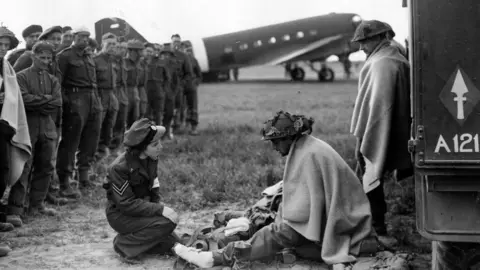 Ministry of Defence
Ministry of Defence Known as the Flying Nightingales, Cpl Alford and LACWs Roberts and Birkbeck were the first to leave RAF Blakehill Farm.
Cpl Alford later recalling what happened and described how she was particularly struck by “the dust which was everywhere, coming up in great clouds”.
“While the freight was being unloaded I tried to make the wounded men as comfortable as possible in all that dust. I had water to give them and panniers of tea,” she said.
For the rest of the war the three women and many others were flown across Europe in specially adapted RAF planes that could carry up to 24 casualties.
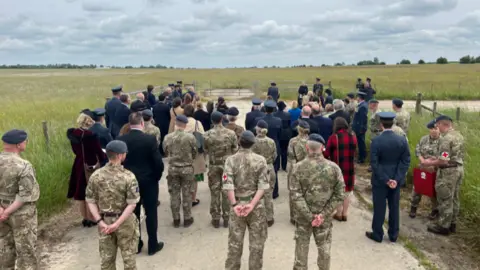
LACW Robert’s daughter, Maureen Rogers, said she felt “humbled and privileged” to have this opportunity to commemorate her mother.
She said her mother would have taken the ceremony “in her stride”.
“She used to say to me: ‘We had no idea what we were going to encounter,” Ms Rogers said.
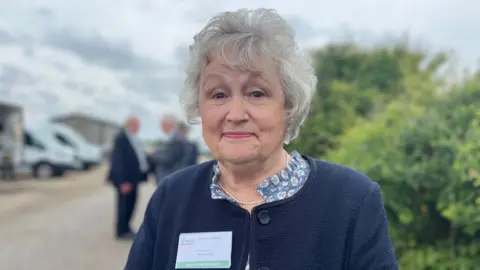
LACW Birkbeck’s daughters, Sian Gammond and Cherly Ridler, said their mother did not talk much about the war.
“I think it was my father who first brought it up when he said ‘you’ll never guess what your mum did’,” Ms Gammond said.
“She didn’t think she was very special, but my dad said she was a hero to go out and she’d say ‘no, just doing my job’.”
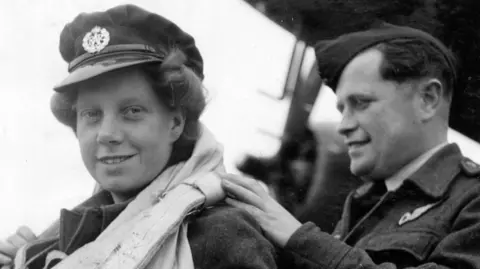 Ministry of Defence
Ministry of Defence The sisters said their parents met at RAF Blakehill Farm, now a nature reserve, which made the ceremony even more special.
“You think, gosh, they walked around here,” Ms Gammond said.
“She was a very strong, independent lady and she loved doing jitterbug dancing,” Ms Ridler added.
“She was the jitterbug queen where she came from.”
Both woman commended the continued work of the women in the RAF medical reserves.
“To think that it’s all been carrying forward and they’re still doing such amazing work,” Ms Ridler said.
Follow BBC Wiltshire on Facebook, X and Instagram. Send your story ideas to us on email or via WhatsApp on 0800 313 4630.




